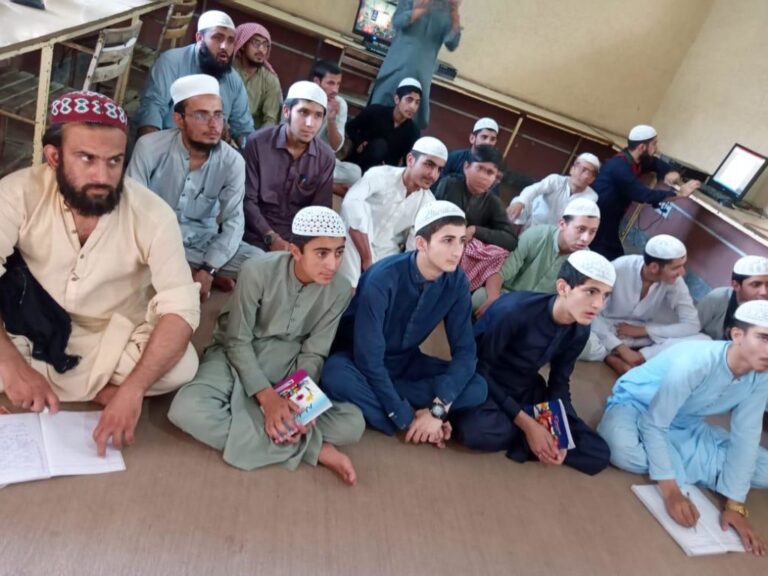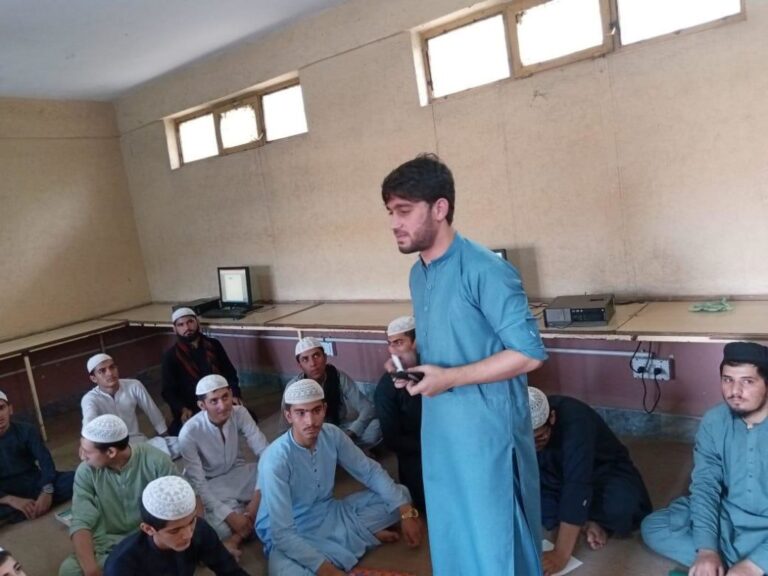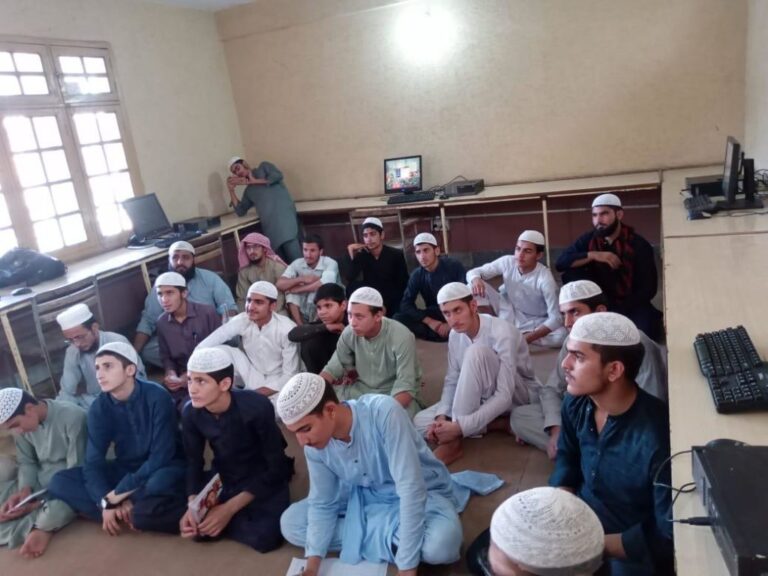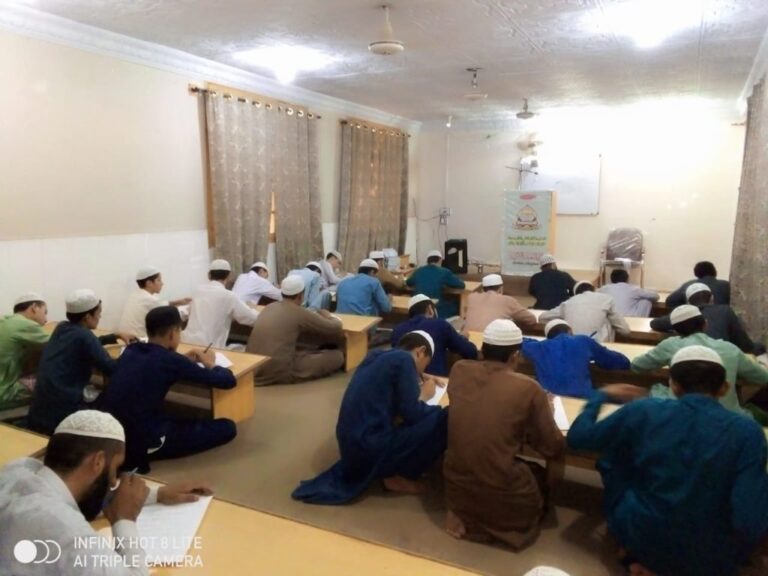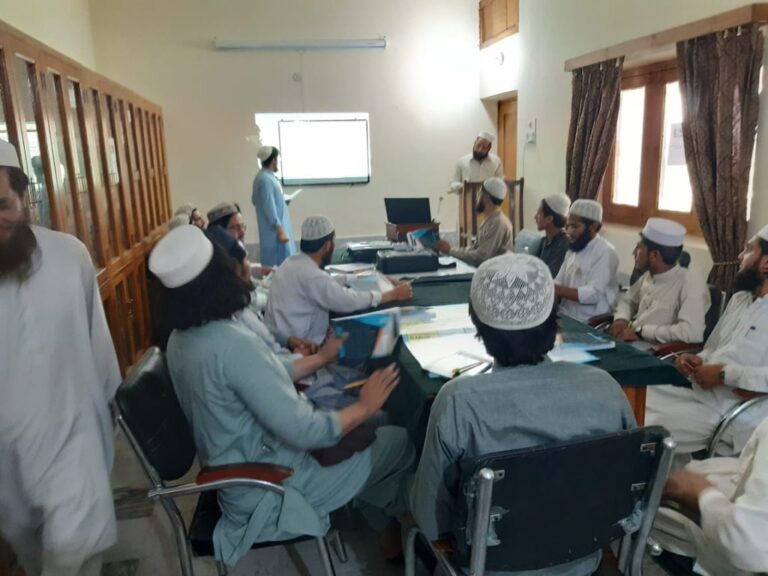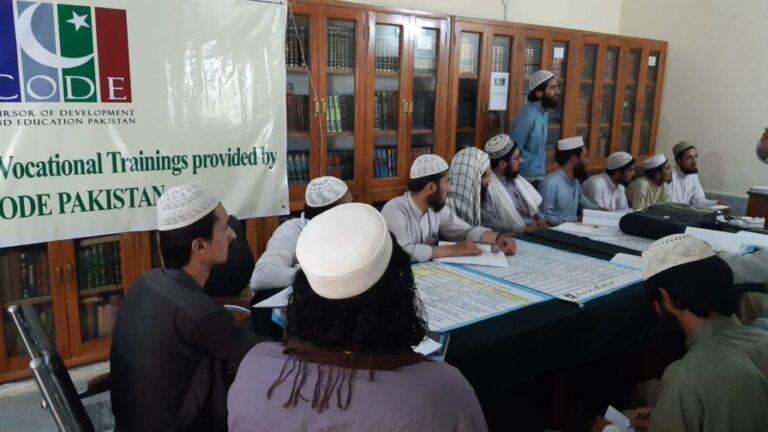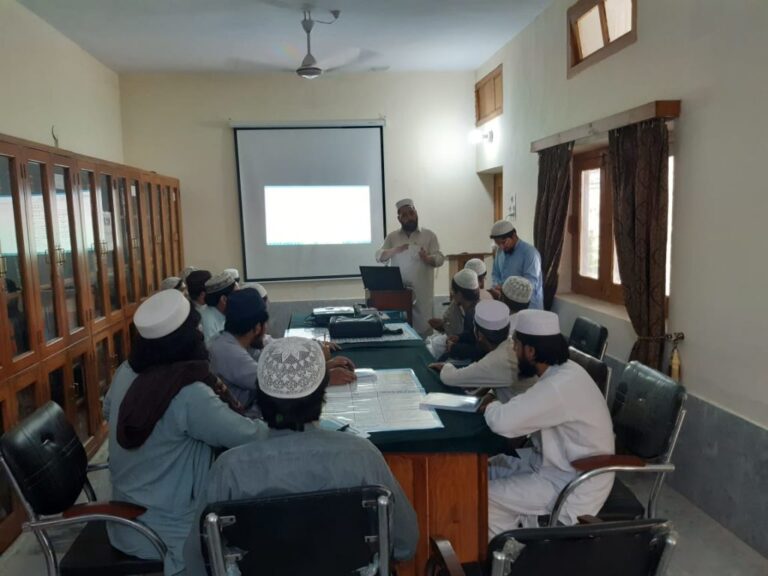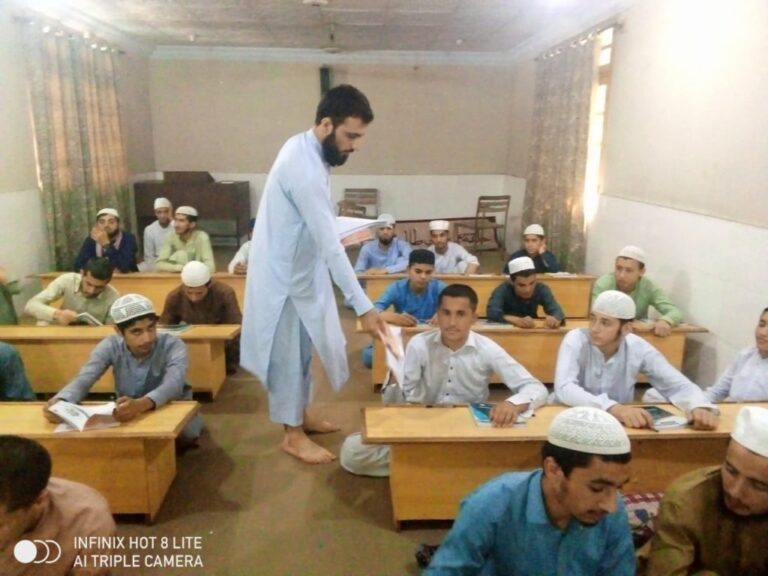Madrassahs (religious seminaries)
Madrassahs (religious seminaries) in Pakistan are part of an education system
Madrassahs (religious seminaries) in Pakistan are part of an education system that is not fully integrated into the government’s mainstream educational structure. The graduates of madrassahs are primarily educated in the field of religious education with very few relatively well-endowed madrassahs also imparting contemporary education to their pupils. Notwithstanding the fact that madrassahs have historically served as centres of learning for Islamic scholars—as well as their role as welfare institutions providing food, accommodation, religious education, and a possible livelihood to thousands of destitute youth and adolescents who cannot afford formal education—the graduates of madrassahs do face difficulties in earning respectable livelihoods. The reason is that their primarily religious education in madrassahs does not fully equip them with the knowledge and skills required by the contemporary job market.
Therefore, CODE PAKISTAN supported madaris students in Khyber Pakhtunkhwa (KP) in order to impart employable knowledge and skills to madrassahs youth studying in five madrassahs in KP.
We embarked on the project in testing times of the Covid-19 pandemic where educational activities and schedules were uncertain because of government restrictions. We were, however, able to achieve success by overcoming all the challenges that came our way during the process.
CODE PAKISTAN went through a painstaking process for selection of madrassahs for the project intervention in the province of KP. Once all the madrassahs for the project intervention were shortlisted, a detailed needs assessment of the educational and vocational training needs of each madrassah was conducted.
As per the needs assessment conducted by CODE PAKISTAN in the five target madrassahs, all the target madrassah students opted for computer-based Microsoft Office courses. As per the educational needs assessment conducted by CODE PAKISTAN, the students of all the five target madrassahs save one opted for English language courses. Only Jamia Moeeniya students opted for Legal Drafting/Legal Awareness course.
Although we had set out to train a total of 150 students (30 students per madrassah) in both English language and computer skills, we far exceeded our target in terms of numbers. We successfully trained a total of 223 students (121 in instructional courses of English language and legal drafting/ awareness and 102 in vocational courses of computer).
As shown in Figure 1 and Figure 2 below, we met or exceeded our target on the number of students for each madrassah.
Figure 1
Beneficiaries of English Language and Legal Drafting Awareness Courses

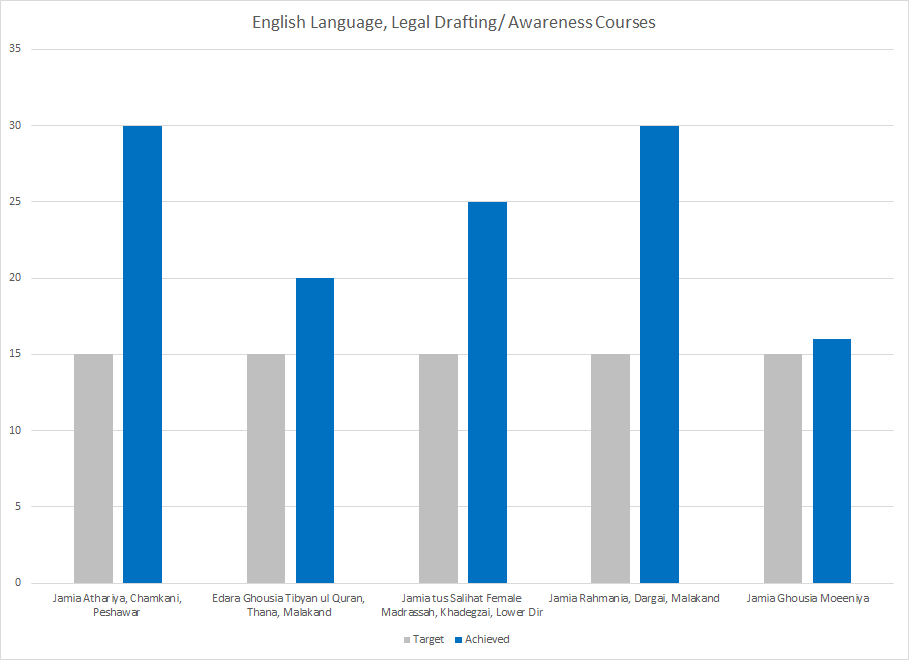
In addition, despite the difficulties of working with women in the madrassah of the peripheral areas of the country, we successfully completed delivering English language and computer courses in Jamia tus Salihat in the Khadegzai area of the Lower Dir district. We successfully trained a total of 41 female students of the target madrassah in that remote area through our intervention. As shown in Figure 3 below, 19 percent of our beneficiary students were female, which is 4 percentage points higher than what we had initially set out to achieve.
Figure 3
Gender Disaggregated Data of the Beneficiaries

Jamia Rahmania Dargai
Jamia Rahmania Dargai was the only madrassah among our target madrassahs whose students had some exposure to English language learning. The feedback of the students in assessment tests showed that they had learnt the basics to pronounce correct words and link them grammatically/ syntactically in sentences. The instructor of the course recommended more such courses for the students of the target madrassah as well as other madrassahs. He also recommended refresher courses for the instructors as well.
Jamia Rahmania Dargai
Jamia Rahmania Dargai was the only madrassah among our target madrassahs whose students had some exposure to English language learning. The feedback of the students in assessment tests showed that they had learnt the basics to pronounce correct words and link them grammatically/ syntactically in sentences. The instructor of the course recommended more such courses for the students of the target madrassah as well as other madrassahs. He also recommended refresher courses for the instructors as well.
Since Jamia Atharia did not have a functioning computer lab, the students of the madrassah had limited acquaintance with computers. The students were, however, quite eager to learn and actively participated in the practical workshops. The instructor of this course was quite satisfied with the learning curve of the students as well as their eagerness and ability to learn quickly. He was further of the view that since the madrassah students had more specified interests with regard to computers, the basic computer literacy course could be supplemented with a course on computer graphic designing with tools like Adobe Suite because after acquiring the basic the students were more interested in learning them.
Jamia Ghousia Moeeniya Peshawar
Jamia Ghousia Moeeniya Peshawar was the only madrassah among our target madrassahs that had chosen Legal Awareness/Legal Drafting course instead of English language course, for which our partner institution had hired a very able former judge of the KP judiciary as the instructor. The understanding of the students about the basic legal structure of the country was quite limited to begin with. The instructor of the course was quite pleased with the response of the students to the course. The students as well as the administration of madrassah highly appreciated the effort and thanked CODE PAKISTAN for arranging the training, according to him. The students shared with him that the training and basic legal awareness would help them understand the basic legal issues and enable to respond to such issues in accordance with the law. The administration also shared with him that knowledge of legal drafting would help the madrassah students to use this skill as a source of earning livelihood for themselves and their dependents. They told him that the process of skill development in different fields should be extended to all the madrassahs, affording an equal opportunity to all the students to learn and then utilize the same for their economic empowerment, after graduation

